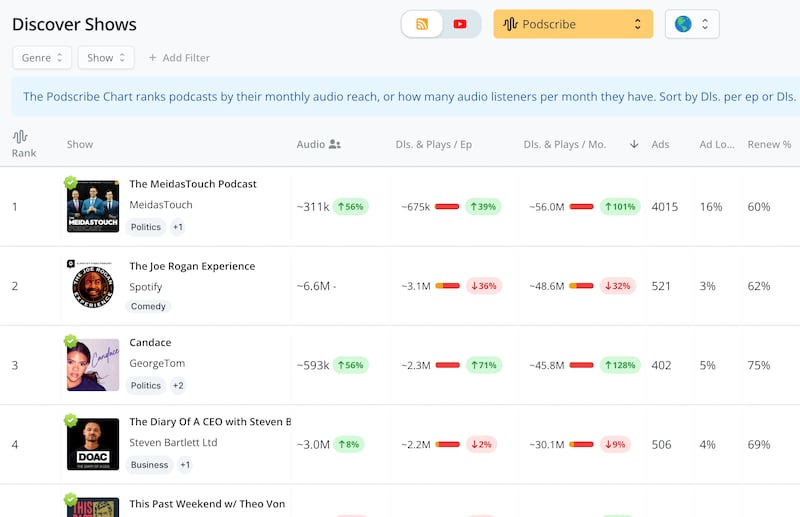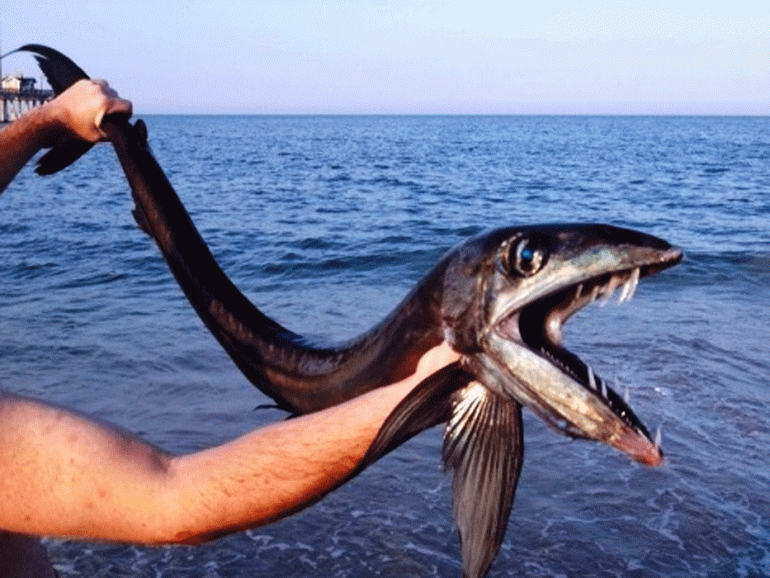
“The German election set for February 23 has been coasting toward a predictable outcome since the collapse of Chancellor Olaf Scholz’s three-party coalition in December. Friedrich Merz, the center-right leader of the opposition Christian Democrat CDU-CSU, remains comfortably ahead of his nearest rival, the populist nationalist Alternative for Germany (AfD). In order to become chancellor, Merz will have to form a coalition with either the center-left SPD or the Greens, or possibly both. This outcome risks producing a new iteration of the unpopular, fractious three-party coalition led by Olaf Scholz. The major novelty of the race is the unprecedented level of support (about 20%) for AfD …. Last week’s diplomatic blitz by Defense Secretary Pete Hegseth at the Ukraine Defense Contact group, followed by Vice President J.D. Vance’s speech at the Munich Security Conference, brought a shocking new focus on the viability of staying the course on Ukraine and on U.S. commitments to European security, raising the stakes in Germany’s election. Vance’s critique of Germany’s ‘firewall’ was taken as an attempt to boost support for the AfD. Both Scholz and SPD Defense Minister Pistorius reacted viscerally in Munich, while Foreign Minister Baerbock contended that the U.S. could yet be persuaded to revise its positions on a Ukraine settlement, in particular on territorial concessions to Russia and NATO membership for Ukraine. Conference organizers had revoked invitations to both AfD and BSW because their delegations had walked out of the speech by Ukraine president Zelensky at last year’s event. Vance pointedly made time to meet with Alice Weidel while in Munich. For good measure, Presidential envoy Keith Kellogg made clear at Munich that Europeans would not participate in the initial phase of U.S. Russia talks on a settlement. The opening of talks by the Americans and Russia in Riyadh on February 17 followed with what, for Europe, was dizzying and disorienting speed. A German diplomat told Politico that Europe had received repeated wake up calls (about the imperative to increase military capabilities) but had ‘kept hitting the snooze button.’ It is hard to understand how European analysts could have failed to prepare any contingency for the kind of dramatic reorientation of American policy on Ukraine that had been forecast clearly before and during Trump’s election campaign.” (Molly Oneal/Responsible Statecraft)
“During Trump’s first term as the 45th president of the United States, the tech elite of Silicon Valley viewed him as a pariah—a chaotic force who, at best, could be ignored and, at worst, would wield power to crush innovation under the weight of unpredictability or personal grievances. But as the 47th president of the United States, and with Elon Musk at the reins of the Department of Government Efficiency (DOGE), Trump appears to be the best thing to happen to tech since sliced silicon … One longtime Silicon Valley insider who’s worked in the tech industry for three decades expressed cautious optimism that Musk’s chaotic action will eventually yield a plan for boosting the tech sector. ‘The only growth industry we have in this country outside of Hollywood is technology. It is the vector of all future competitiveness and edge for this country. It’s also what we need for everything from our military to our health and food,’ they said … But as the longtime Silicon Valley insider noted, while the American tech industry celebrates its newfound freedom from regulation, we may be missing the bigger picture. Instead of arguing about tech, they said, we should be focused on China, our biggest competitor. ‘The Chinese have a singular AI policy, which is to make AI great, and what’s our policy? It’s ‘How big is my valuation?’’ the insider said.” (Nick Bilson/Vanity Fair)
“To say that China is winning or not winning the hearts of people across the entire continent is deterministic and ignores the diversity and agency of the populace. The perception of China’s presence in Africa is mixed. China’s infrastructure investment attracts favourable views, as does its policy of non-interference and mutual economic benefits. However, China’s involvement in the mining industry draws more criticism. China’s non-interference approach and relationship with dictators have further invited criticism that China undermines democracy. One of many factors that drive the diversity in views toward China is partisanship. A recently published study analysed the Afrobarometer survey data across 33 African countries and found that opposition party supporters are more critical of China than incumbent party supporters. Critics from opposition parties are mainly driven by their ambition to govern, but they also hold the incumbent party accountable. Political elites and people in Africa have agency, and they are driven by their political position instead of China’s interests. Although over 70 per cent of the survey respondents expressed positive views of China, the results shed light on critical voices. This partisan divide stems from the mode of China’s bilateral engagement. The Chinese government usually builds a favourable relationship with an incumbent party. When China provides aid to a country, the ruling elites express favourability toward China, sending a signal to their party supporters. This can make both opposition leaders and their supporters critical of China and its involvement with the party in power. In Namibia, the South West Africa People’s Organization (SWAPO) has close ties with China, and the ruling elites are criticized for pursuing their personal benefit at the expense of the people. The presence of critical opposition party supporters indicates subversion of the government’s pro-China position.” (William Hatungimana, Haruka Nagao, Rigao Liu/LSE)
“Billionaires tend to buy what they want: mansions, yachts, spaceships, communications platforms, connections that allow them to transform nations. That’s a global reality in what will be remembered as an age of resurgent plutocracy. Contemporary oligarchs obtain influence in different ways—in some nations, through direct bribes and shady business arrangements; in others with slightly more genteel democratic sensibilities, through the sort of election expenditures that former US Senator Russ Feingold has long described as ‘legalized bribery.’ The head of today’s billionaire class, Elon Musk, has used his fortune to insert himself into the electoral processes of many countries—most notably the United States, where the world’s richest man spent upwards of $260 million to secure the election of a malleable lesser billionaire as president. With the threat of additional spending against dissenting Republicans in the Congress, Musk has so intimidated one of the country’s two major parties that he is now widely seen as guiding key affairs of state from a perch as Donald Trump’s ‘special government employee.’ But the South African-born billionaire does not appear to be satisfied with the outsized role he has assumed with regard to the federal government. He now seeks to influence elections at the state level too—and, in so doing, to upend the civic architecture of a country where the historic and constitutional mandate was for a division of powers that guarded against kingly overreach. This week, a Musk-backed political action committee, Building America’s Future, bought a reported $1.5 million in advertising time on television stations across the state of Wisconsin, where one of the most critical elections of 2025 will be decided on April 1. The race is for an open seat on the state’s powerful Supreme Court, which currently has a 4–3 progressive majority.” (John Nichols/The Nation)
“It follows that anyone who builds their professional careers in service to the old model of aid dependency will struggle as aid becomes ever more nakedly associated with undue foreign interference, the coddling of unambitious leaders, and the facilitation of economic pillaging in low-income countries. Opportunities for impactful and rewarding work will come from the alignment of low-income countries’ developmental strategies with the realities of global geopolitics. This won’t be new. We saw variations of the same during the Cold War. The only difference is that this time it will be happening under multipolarity — which comes with its own set of risks and opportunities. Relatedly, I must say I’ve been a little surprised by the global divergence in both the tenor and content of conversations around the demise of USAID. As far as the impact of aid goes, American commentary has mostly focused on the plight of individual aid beneficiaries and the potential loss of U.S. influence around the globe. Commentators from low-income countries have mostly emphasized the ills of aid dependency, while also pointing out the glaring failures of most aid projects outside the health sector. These conversations need to merge. Only then will everyone be in a position to imagine future forms of development assistance that are mutually beneficial and that do not cultivate aid dependency or create a pretext for undue foreign interference in low-income states.” (Ken Opalo/The Africanist Perspective)

“An anti-Trump podcast outpaced The Joe Rogan Experience by a large number of downloads and views over the past month, according to podcast ranker Podscribe. The MeidasTouch Podcast grew its reach by 101 percent in the past month, raking in 56 million downloads and views across audio platforms and YouTube, data as of Feb. 18 showed. Joe Rogan’s show came in second place with 48.6 million downloads and views, down by 32 percent over the past month.The Podscribe ranker accounts for the total estimated number of downloads and views that a show receives across all episodes each month on both its podcast and YouTube channel. The MeidasTouch Podcast is hosted by brothers Ben, Brett, and Jordan Meiselas, who regularly scorch President Donald Trump in episodes that mix news and banter. Before joining forces, Ben was the lead lawyer for NFL quarterback Colin Kaepernick and co-owns the Los Angeles Magazine with celebrity attorney Mark Geragos. Brett won two Emmys for his video editing work for The Ellen DeGeneres Show. Jordan, meanwhile, was an award-winning advertising executive in New York. In the past month, the podcast covered Trump’s glitzy appearance at NASCAR’s Daytona 500 race, the series of plane crashes that have beset the Trump administration’s early days in office, and controversial tariffs imposed on imported goods … Though the anti-Trump podcast climbed its way to the top, the Podscribe chart was still dominated by right-leaning shows.” (Julia Ornedo/The Daily Beast)
“When the composer, Jake Heggie, said to the Dallas Opera, ‘We want to do Moby-Dick,’ the artistic director Jonathan Pell asked, ‘Is there anything else you’d like to do?’ So, yes. It was a daunting prospect, and it took a long time to figure out a way into it … If there was any text that I could use from the book, I would use it. Sometimes I would use a key phrase from the book and then write around it. And in other places, there are long passages that are just really edited down from the book. Sometimes I changed certain things and kept others. In the first act, when the crew first sees a pod of whales and Ahab refuses to lower the whaleboats Moby-Dick isn’t among them—that’s not in the book. But it’s a way of distilling the conflict between Ahab’s desires to kill Moby-Dick and the crew’s desires to make money. Later, Starbuck says, Look, these guys have to earn some cash. There’s going to be a mutiny if you don’t allow them to go. And so Ahab says, ‘They pant like dogs for cash.’ This draws from a line in the novel, about how ‘cash would soon cashier Ahab.’ I used that line as a point of departure. It’s like when you throw a stone into a pond. But one of the things that’s so profound about Moby-Dick, is that when you drop the stone into the pond, it ripples out in an asymmetric way. Certain things are highlighted and certain other things aren’t. So the cetology, the history of whaling, all the stuff that is woven into the text of the novel—I’m trying to get that feel, all while telling this story of adventure and story of conflict that happens if you try to control the world, which ultimately is beyond anyone’s control.” (Sophie Haigney/The Paris Review)
“Before we get started, let me make something clear: Autism is tragic. It is frustrating, terrifying and incomprehensible. It can be ameliorated but not totally defeated: it affects the way people respond to other people. They find it hard to pick up social signals, which conveys the impression of insensitivity. Empathy is difficult, impossible for some. It is a condition far too common now, a kind of isolation, symbolic of our iPhone era. No one knows what causes it. Trump has assembled an administration of emotionally damaged people. They embrace conspiracies, like Bobby Kennedy and Tulsi Gabbard and Kash Patel. Others tend to be deficient in the empathy zone. Elon Musk has told his biographer Walter Isaacson—the book is excellent—that he has an Asperger’s personality. That’s at the mild end of the spectrum. But, not to put too fine a point on it, he treats other people like shit. He has no ear for human sensitivity; and he surrounds himself with like-minded brutalists. I don’t know if there are any statistics on this, but I suspect that the math geek world—the engineers, the computer nerds, his Doge storm-troopers, those who (like Musk) are more comfortable with video games and abstract equations than with other people—has more than its share of people on the spectrum. They feel numbers, not people; they are more comfortable with abstractions than emotions. They refuse to bother with the difference between vital humanitarian relief and DEI boondoggles in USAID. One imagines them giggling with every minuscule budget cut. That arrogant insensitivity is the core spirit of Trump II.” (Joe Klein/Sanity Clause)
“Homelessness has become so intractable and ubiquitous that it has taken on an almost geographic nature. The Lost and the Found: A True Story of Homelessness, Found Family and Second Chances, a new book by the veteran San Francisco Chronicle reporter Kevin Fagan, attempts to shake the reader out of this complacent state of mind. It follows Rita, a down-and-out old hippie from Florida, and Tyson, a former rich kid from the tony Bay Area suburb of Danville. Their backstories, which Fagan lays out in breezy but well-reported detail, are roughly the same: a seemingly normal childhood but one that might feel just a nudge off-kilter. Hard partying leads to an acceleration of addiction: Rita, in her thirties, after giving birth to four children; Tyson, in his late twenties, after crashing out of college and working practically every job in the nicer parts of the East Bay. And then something unexpected happens that casts them into a torrent of destruction and self-imposed isolation. They are on the streets, and before too long, the demands of addiction and survival take over their lives. When we first meet Rita, she is homeless and H.I.V.-positive and can rely on only Tommy, a warmhearted fellow-addict who lives with her on a traffic island near the Mission District. During the course of Fagan’s reporting, he learns that Tommy has died from an infection. His friends on the island have been worried about him, and it falls on Fagan to tell them. The scene that follows—an intense grief followed by a quick return to the dull and depraved routine of trying to score their next hit—captures both the extremism and the banality of addiction and homelessness.” (Jay Caspian Kang/TNY)
“Animals living in one of Earth’s most extreme environments—beneath the bottom of the sea—are not just making the best of the situation, according to new research. The animals are actually shaping their situation, wriggling through the sediment and paving the way for other forms of life. The team sampled sediment cores from the Pacific Ocean’s Japan Trench off the coast of Honshu. The group studied the hadal zone—the deepest part of the ocean—at about 4.66 miles (7.5 kilometers) beneath the surface. Even there, life finds a way. The team’s research was published today in Nature Communications. Bioturbation is an engineering process by which animals or plants oxygenate and irrigate sediment. Many creatures do this by burrowing, and those under the seafloor are no exception. Bioturbation affects the way that nutrients cycle through sediments in an ecosystem, and, in turn, how the ecosystem functions. ‘Deep-sea benthic communities have often been seen as low in diversity and biomass due to harsh conditions like limited food and energy,’ said study lead author Jussi Hovikoski, a sedimentologist at the Geological Survey of Finland, in an email to Gizmodo. ‘However, recent sampling in hadal trenches has revealed a surprising variety of life, including holothurians, polychaetes, bivalves, isopods, actinians, amphipods, gastropods, and bottom-dwelling fish.’ Last year, a team of researchers discovered macroscopic life beneath the deep ocean’s seafloor, complicating our understanding of the living things in one of Earth’s most extreme environments, while also offering a hint at what life could look like beyond Earth—perhaps in the subsurface oceans of moons in our solar system. The recent study adds to that saga, by showing how similar deep sea environments turn over, refreshing the local environment with nutrients and oxygen.” (Isaac Schulz/Gizmodo)
“Universities across China have launched artificial intelligence (AI) courses this month based on Chinese AI startup DeepSeek, whose AI breakthrough has been described as a ‘Sputnik moment’ for China and garnered widespread attention. The move comes as Chinese authorities aim to boost scientific and technological innovation in schools and universities that can create new sources of growth for the world's second-largest economy. DeepSeek, a Hangzhou-based startup, has been showered with praise by Silicon Valley executives and U.S. tech company engineers alike, who say its models DeepSeek-V3 and DeepSeek-R1 are on par with OpenAI and Meta's most advanced models. Shenzhen University in southern Guangdong province said this week that it was launching an artificial intelligence course based on DeepSeek which would help students learn about key technologies and also on security, privacy, ethics and other challenges it said. It will ‘explore how to find a balance between technological innovation and ethical norms.’” (Reuters)



